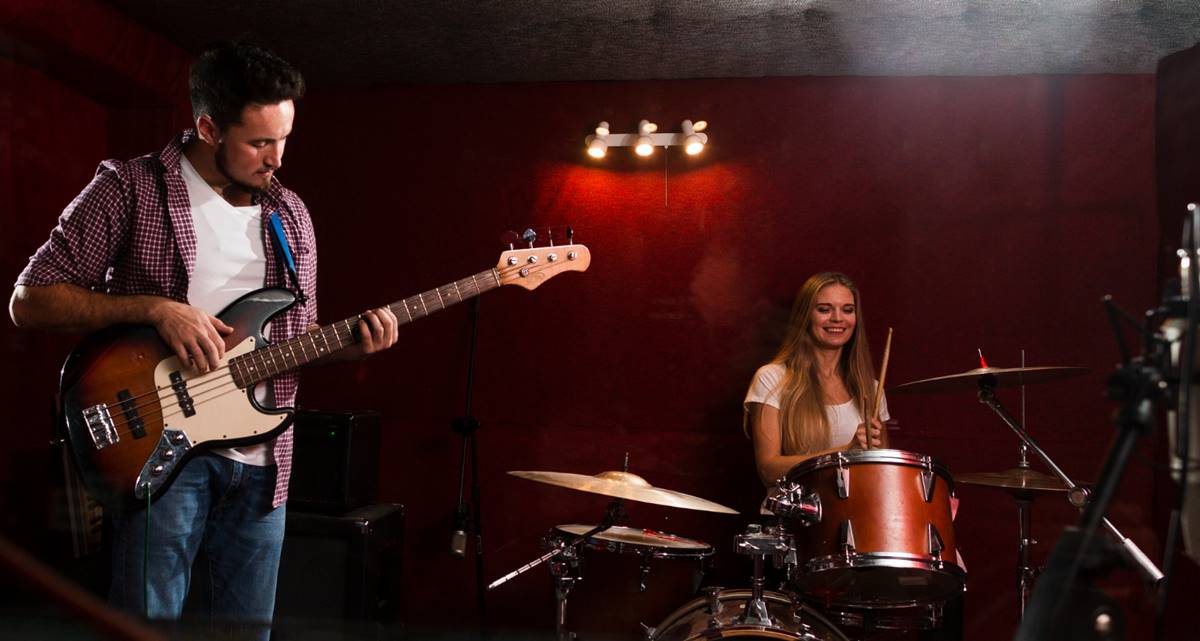If you’re part of a band in 2025, you already know: the music is just the entry point. Building a successful career today requires more than a killer sound. It takes branding, community, tech-savvy execution, and a willingness to think like a startup. The upside? You’re not just an artist—you’re a brand with creative control and commercial potential.
Merch goes premium
In the streaming era, where music is more accessible—and more undervalued—than ever, merchandise has become one of the most reliable revenue streams. But we’re no longer talking about a few screen-printed tees. Today’s fans expect thoughtful, stylish, high-quality items they can wear with pride. Investing in custom merchandise for bands means tapping into a lifestyle culture, not just offering souvenirs. Whether it’s fashion-forward apparel, limited-edition vinyl, or exclusive fan bundles, merch is no longer a side hustle—it’s your main streetwear line, your creative portfolio, your connection point.
Tech-enabled fan experiences
By 2025, live shows are only one dimension of the concert experience. Hybrid performances, AR-enhanced visuals, and personalized fan access are raising the bar. Fans don’t just want to listen—they want to participate. Smart bands are offering subscription models for behind-the-scenes content, hosting virtual backstage chats, and delivering personalized setlists based on audience polls. These direct-to-fan strategies not only create deeper loyalty, they also open up new monetization channels that aren’t reliant on touring schedules or label deals.
E-commerce and digital ownership
Digital storefronts aren’t optional anymore—they’re essential. With tools like Shopify, Bandcamp, and Patreon, musicians can sell directly to fans worldwide. From ticket pre-sales to digital art and even NFTs (for those who want to explore that space), online stores give you 24/7 revenue potential. One under-the-radar move that’s been gaining traction? Offering fan-curated product drops, where your audience votes on the next merch design or album cover. It’s engagement, validation, and marketing in one.
Licensing and sync: the quiet powerhouse
Don’t overlook the business of music licensing. In an era flooded with content—think streaming series, video games, YouTube channels—there’s endless demand for soundtracks. Landing a placement in a Netflix trailer or indie game can bring exposure and a solid paycheck. In 2025, many indie bands are treating sync as a core revenue pillar, not just a bonus. It starts with having your catalog clean, tagged, and easy to pitch.
Brand collaborations and identity capital
When your brand is clear, partnerships follow. In the past, it was rare for bands to collaborate with fashion labels, tech startups, or beverage companies. Today, it’s increasingly common. If your visual style, message, and fanbase align with another brand, you’re no longer just a musical act—you’re a cultural vehicle. This is where platforms like wearetherealpimp.com offer a case study in going all-in on a brand identity. Bold, unapologetic, and unmistakably unique, it shows what’s possible when you turn niche appeal into mainstream attention.
Building fan-funded empires
Crowdfunding is more sophisticated than ever. Beyond Kickstarter or GoFundMe, artists are creating full-fledged membership models. Platforms like Patreon or Memberful enable bands to offer tiered access to music, exclusive content, merch drops, or even meet-and-greets. It’s a business model rooted in community—and for many, it’s providing a sustainable income stream that grows with fan engagement.
A new era, your way
The road for bands in 2025 isn’t easy, but it’s rich with possibility. The artists who win today aren’t waiting to be discovered—they’re building ecosystems around their sound. They’re cultivating loyal audiences, launching product lines, licensing their art, and creating unforgettable experiences. Music is still at the center, but it’s everything you build around it that transforms your band from a passion project into a self-powered creative business. If you’re in a band right now, think bigger. You’re not just playing shows—you’re building a world.
